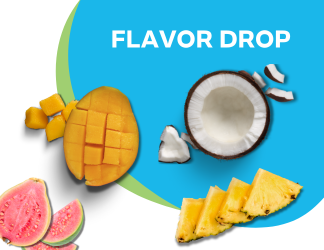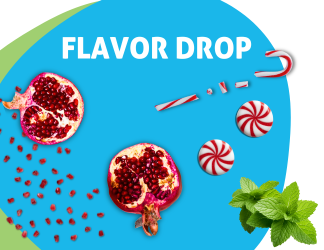 Our team of flavorists works skillfully and tirelessly at designing flavors that work in conjunction with all other components that make up a beverage matrix – sweetener systems, carbonation, protein, and stabilizing systems to protect them during and after processing. As much as we see (and play a role in) products coming to market that push the envelope with sophisticated and/or exotic flavor combinations, there are some flavor types that will remain popular for years to come. True-to-fruit flavors are still prevalent in beverages and are among the top flavors our customers request. Even though we expect more exotic fruits to be introduced and resonate with the modern consumer, we don’t anticipate demand for classic true-to-fruit flavors to change.
Our team of flavorists works skillfully and tirelessly at designing flavors that work in conjunction with all other components that make up a beverage matrix – sweetener systems, carbonation, protein, and stabilizing systems to protect them during and after processing. As much as we see (and play a role in) products coming to market that push the envelope with sophisticated and/or exotic flavor combinations, there are some flavor types that will remain popular for years to come. True-to-fruit flavors are still prevalent in beverages and are among the top flavors our customers request. Even though we expect more exotic fruits to be introduced and resonate with the modern consumer, we don’t anticipate demand for classic true-to-fruit flavors to change.
Recently, we reviewed 100 new beverage products and found that the breakdown of the flavor categories was as follows:
40% fell into the True to Fruit category, though it’s worth pointing out that if a botanical (herb, spice, flower, other plant material) came first in name in the flavor profile, that punted a product into the botanical slice of the pie. (i.e. lavender lemon would have the botanical designation, whereas lemon lavender would be denoted as true to fruit.)
39% fell into the Botanical category. This category includes tea and floral flavors as well, with flavor profiles putting chamomile, cascara, mint, lavender, turmeric and hibiscus at the forefront.
12% of the flavor profiles could be described as Indulgent or Classic, which would account for any vanilla, chocolate, or coffee-esque flavors.
11% were categorized as “Spice”. In this instance, we only included spices that elicit a kind of warming sensation, even if it’s subtle, like ginger, cayenne, and cinnamon.
While many of these newer products may fall by the wayside in this ultra-competitive market, the fact that the botanical slice of the pie is almost equal to that of fruit tells us that this is something that some has captured consumer interest. Many of these botanicals, of course, are also associated with health benefits, which helps draw in consumers that seek more than just hydration. Case in point: #adaptogens has experienced 36% growth on Instagram in the last 6 months and #lavenderlatte incidences increased 16% in the same time frame.
We think that the following botanicals are poised for growth, based on market products, consumer perception and our work in the lab: hibiscus, elderflower, lemongrass, lemon balm and cardamom.
Whether you’re looking for a beverage development partner, a flavor for your next beverage project (botanical, true to fruit, or otherwise), or have a question about flavor attributes or certifications (organic certified, halal, kosher, Prop 65 compliant, vegan, etc.), you can always email your beverage experts at thedrinktank@imbibeinc.com to keep the conversation going.



